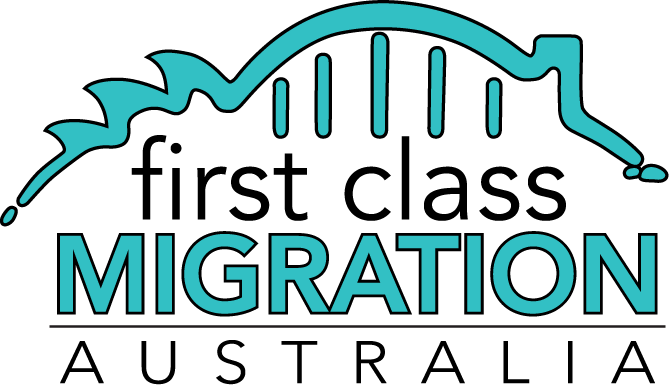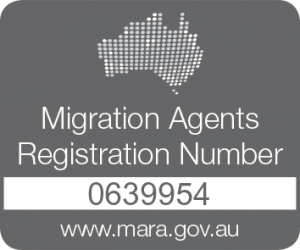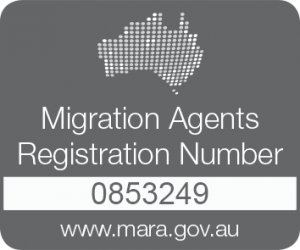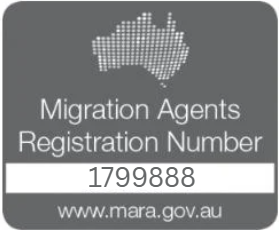Wrapping Up the Financial Year: Migration Updates
Wrapping Up the Financial Year: Migration Updates
Wrapping Up the Financial Year:
Reflecting, Resetting and Looking Ahead
– June 2025 –
Approaching the end of financial year, it’s an opportune moment to reflect on the shifts we have seen across Australia’s migration landscape – from evolving visa policies and increased regional focus, top a growing demand for skilled talent and employer-sponsored pathways.
The end of financial year not only allows us to review the changes that have occurred but also prepare for what’s ahead. In this edition, we’ll recap key developments, share practical insights, and help you navigate the road ahead with confidence. Here’s to a strong finish and a fresh start for the 2025-26 financial year.
In This Edition:
- RECAP: Increase in the Income Threshold for Employer Sponsored Visas
- RECAP: Subclass 482 & Subclass 494 Visa Holders – Ceasing Work
- RECAP: NSW State Allocation Exhausted – Subclass 190 Visa
- NSW State Nomination Allocations – Subclass 190 & Subclass 491
- NSW National Innovation Visa (NIV) Pathways
- Processing Times
- Department of Home Affairs Fees Increase
- NSW State Migration Plan 2024-2028
RECAP: Increase in the Income Threshold for Employer Sponsored Visas
Previously released by the department, Effective 1 July 2025, income thresholds for employer-sponsored visas will be updated to reflect annual wage growth (AWOTE increase of 4.6%).
New Thresholds:
- Core Skills Income Threshold (CSIT): $76,515 (up from $73,150)
- Specialist Skills Income Threshold (SSIT): $141,210 (up from $135,000)
- Temporary Skilled Migration Income Threshold (TSMIT): $76,515
This applies to:
- Subclass 482 (Skills in Demand Visa)
- Subclass 186 (Employer Nomination Scheme)
- Subclass 494 (Skilled Employer Sponsored Regional Visa)
All new nominations from 1 July must meet the updated threshold or the market salary rate—whichever is higher. These changes won’t affect existing visa holders or lodged applications prior
RECAP: Subclass 482 & Subclass 494 Visa Holders – Ceasing Work
The Department of Home Affairs confirmed that it does not expect Sc 482 and Sc 494 visa holders who have stopped working for their sponsor and have lodged a nomination application to change employers within the required timeframes (180 days since ceasing employment with their previous sponsor) to cease working for their prospective sponsor, even if the Condition 8607(5) and 8608(5) timeframes have lapsed.
Therefore, Sc 482 and Sc 494 visa holders should no longer be disadvantaged by processing delays of nomination transfers as they will continue to have work rights, ensuring they can support themselves while awaiting the outcome of their nomination application.
RECAP: NSW State Nomination Allocations 2024-25 FY – Subclass 190
As of 4 June 2025, NSW reached its nomination allocation for the Skilled Nominated visa (subclass 190) for the 2024–25program year. As a result, no further invitations are being issued under this visa subclass until a new allocation is received from the Australian Government at the beginning of the 2025–26 program year.
With a whopping 103,000 expressions of interest received according to the Skill Select system on the Department of Home Affairs website, the 3,000 allocations were exhausted and now we prepare for new allocations be released in the new financial year.
New State Nomination Allocations 2025-26 FY
New state and territory nomination allocations will be released for:
- Skilled Nominated visa (subclass 190)
- Skilled Work Regional (Provisional) visa (subclass 491)
These allocations vary by state and occupation demand, so keep an eye out for updated quotas and eligibility criteria from your preferred state or territory. Once the states get these allocations, they can start putting out their criteria and inviting applicants for the 190 & 491 visas.
Next 189 Invitation Round
The Skilled Independent visa (subclass 189) invitation round is expected shortly after 1 July. With recent changes to points thresholds and occupation focus areas, it’s more competitive than ever. The last invitation round was November 7th 2024 – almost 8 months ago. Many people are awaiting the next invitation round. This is expected to take place sometime between July and September.
If you’re sitting in the Expression of Interest (EOI) pool, now’s the time to update your application — especially with the new points test recalibration on the horizon.
New: NSW National Innovation Visa (NIV) – Pathways Now Open
The National Innovation Visa (subclass 858) is a permanent visa designed for exceptionally talented individuals from around the globe. These individuals are expected to contribute to job creation and boost productivity across priority sectors of the Australian economy. The program targets both established and emerging leaders with outstanding skills and achievements, who can make a meaningful impact on Australia’s long-term prosperity.
The NSW Government has launched its framework for the National Innovation Visa (NIV) – a highly selective, invitation-only program for individuals with exceptional and outstanding achievements in fields aligned with NSW’s strategic priorities.
Nomination Pathways Include:
- Academic & Researcher
- Entrepreneur
- Innovative Investor
- Sports Professional
- Creative Professional
Key Highlights:
- The process begins with an Expression of Interest (EOI), followed by a merit-based review and external endorsements.
- Candidates must show real-world impact, not just aspirations.
- NSW seeks individuals who can drive innovation, create jobs, and elevate the state’s global reputation.
Processing Times ⌛
From the changes we saw occur in December 2024, there was a spike in processing times leading to lengthy delays across various visa subclasses. These delays were mostly seen across Subclass 482 and Subclass 186 Visas with the introduction of the new Subclass 482 Skills in Demand visa.
Since this introduction, the department has been working toward clearing back log and improving processing times. Starting the new financial year, we can expect to see streamlined processing times with the department putting focus toward:
- Skilled migration visas
- Graduate and student visas
- Business Innovation and Investment Program (BIIP) applications
The timeframe for allocation and assessment of applications, including those considered government policy priorities, will vary depending on a range of factors such as the overall application lodgement rate, the total number of applications on-hand and the length of time required to perform necessary checks on supporting information.
The Department have noted that the time it takes to receive information from external agencies, such as health, character and national security requirements, is outside of their control.
We recommend regularly checking the Department’s website for the latest updates.
Department of Home Affairs Fee Increase
The Australian Government has confirmed a visa application fee increase across several subclasses. For example:
- Student visa (subclass 500): increasing from $1,600 to $2,000
- Skilled and family visas will also see adjustments, in line with annual indexation.
This increase reflects rising administrative costs and is intended to help fund faster processing systems. The Australian Government typically reviews and adjusts visa application charges annually to reflect inflation and program funding needs.
From 1 July, all new applications submitted to the department will be processed under the new fees and calculated accordingly at time of submission.
NSW State Migration Plan 2024–2028: A Strategic Vision
The NSW Government has outlined its State Migration Plan, focusing on building a resilient, skilled workforce that meets the state’s long-term needs.
Key Priorities:
- Addressing skill shortages in critical sectors:
- Construction & Housing
- Net Zero & Energy
- Health & Care Economy
- Digital & Cybersecurity
- Agriculture & Agri-Food
- Advanced Manufacturing
- Enhancing regional migration to support local economies.
- Aligning education, training, and migration systems.
- Strengthening social cohesion, family reunification, and workforce retention.
This long-term plan places migration at the heart of NSW’s economic development strategy, ensuring migrants thrive while contributing meaningfully to local communities.
How We Can Help
At First Class Migration Australia, we understand that navigating these changes can be overwhelming. Our team of highly experienced migration agents are here to guide you through the evolving migration policies, offering personalised advice to maximize your chances of successful migration. We stay up to date with the latest developments and provide timely advice to ensure you make informed decisions.
Contact Us
If you have any questions on the above article please do not hesitate to contact us.
02 9999 6668





